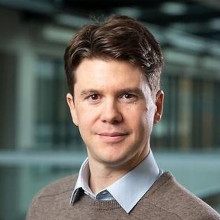Systems and Knowledge
18-20/02/2026, Venice
Congress
8th International PhD Congress
Ca' Foscari University of Venice - Université Paris 1 Panthéon-Sorbonne
Knowledge is intrinsically tied to systematicity. To know something means synthetizing multiple pieces of information into a coherent whole. Systematicity is not just a matter of order or clarity but a necessary condition for universality too: because science is a collective endeavor, we must grasp the deeper structure of our knowledge to check its compatibility with new and different theories. Today’s interest in pluralism, perspectivism and relativism invites us to rethink systematicity, and to consider different frameworks of philosophical knowledge. Far from being a merely epistemological issue, questioning the relationship between systematicity and knowledge entails asking whether and how knowledge discloses a systematicity already present in reality or, rather, imposes it upon reality, as well as inquiring into what kind of systems may best remain faithful to different ontological domains.
The 8th International Doctoral Conference in Philosophy and Education Sciences aims to undertake a collective examination of the concept of systematicity, considering its philosophical and pedagogical dimensions. The objective is to critically assess the role of systematic thinking in the constitution, transformation, and possible fragmentation of knowledge, as well as its implications for philosophy and education sciences.
To this end, the conference will be organized into thematic panels specifically designed to encourage scholarly dialogue and foster interdisciplinary exchange. We thus invite contributions that explore the significance and function of systematicity within History of Philosophy, Theoretical Philosophy, Political Philosophy and Education Sciences, with a view to clarifying its relevance in an age increasingly characterized by theoretical diversity and methodological pluralism.
Programme
18-20 February 2026, Ca’ Foscari (Aula Baratto)
|
|
Congress poster | 367 KB |
|
|
Book of abstracts | 612 KB |
Afternoon session
- 14.15-18.30 Political Philosophy Panel
- 14.15-14.30 Conference opening and institutional greetings
- 14.30-16.00 Keynote speaker: Antoine Bousquet (Swedish Defence University), “Seeing like a War Machine: Martial Systems of Knowledge in the Modern Era” – Discussant: Matteo Pasquinelli (Ca’ Foscari University of Venice)
- 16.00-16.15 coffee break
- 16.15-16.45 Giulio Amore (University of Padova), “A Case from AI's History: Neats vs. Scruffies, two Competing System Ontologies”
- 16.45-17.15 Valerio Specchio (University Federico II of Naples), “Algorithmic Governance as Information Warfare: The Daily Interface Effect of Digital Violence”
- 17.15-17.30 coffee break
- 17.30-18.00 Samuele Cantori (University of Perugia), “Immanent Critique and Totality: The Method of Critical Theory between System and Knowledge”
- 18:00-18:30 Kathryn Weir (Université Paris 8 / University of Bari “Aldo Moro”), “Geomorphology and Terra Nullius: Enlightenment Aesthetics and Time of Landscapes, between the South of Italy and «Africa Italiana»”
Morning session
- 9.00-12.45 History of Philosophy Panel
- 9.00-10.15 - Keynote speaker: Delphine Antoine-Mahut (ENS Lyon), “From exclusion to Generativity: Victor Cousin and the Modern Concept of Philosophical System” - Discussant: Valentina Sperotto (Ca’ Foscari University of Venice)
- 10.15-10.30 coffee break
- 10.30-11.00 Andrés Rivera Arizabaleta (Université Paris1 Panthéon-Sorbonne, Sphere), "The Conception of Mathematical Sciences as a System in Aristotle’s Posterior Analytics"
- 11.00-11.30 Giacomo Manzi (RomaTre University), "Analytical Method and Architectonic Principles in Leibniz’s Système Nouveau"
- 11.30-11.45 coffee break
- 11.45-12.15 Francesco Piccardi (Université Marie & Louis Pasteur), "The systematic and rhetorical nature of knowledge in the philosophy of C.A Helvétius"
- 12.15-12.45 Antoine Auve (Université Paris1 Panthéon-Sorbonne): "Was there a ‘late’ Hegelian Philosophy? System, Encyclopedia, and Academic Research in Berlin"
- 12.15-14.30 lunch break
Afternoon session
- 14:30-18:30 Theoretical Philosophy Panel
- 14:30-16:00 Keynote speaker: Matteo Mossio (Paris 1 Panthéon Sorbonne, CNRS), "The Autonomy of Living Systems and the Autonomy of the Life Sciences" - Discussant: Pietro Omodeo (Ca’ Foscari University of Venice)
- 16.00-16:15 coffee break
- 16:15-16:45 Rokas Valnicius (Vilnius University), "From Transcendental Constitution to Organized Complexity: On Kant’s Influence in Systems Theory"
- 16:45-17:15 Andrea de Donato (Università di Torino), "A-centrism, mathematics and philosophy of fluid systems"
- 17:15-17:30 coffee break
- 17:30-18.00 Cesare Cherchi (Univerzita Karlova), "Systematicity without consistency"
- 18.00-18:30 Camille Hervé (Université Paul Valéry de Montpellier), "From System to Ecosystem: Rethinking Co-determination in Kitaro Nishida’s Philosophy"
Morning session
- 9.00-12.15 Education Science Panel
- 9.00-10.30 Keynote speaker: Marta López Costa (Universitat Oberta de Catalunya), "Educating in the digital ecosystem" - Discussant: Flavio Manganello (CNR-ITD Genova)
- 10.30-10.45 coffee break
- 10.45-11.15 Arianna Marci (University of Genoa), "Faculty Development and challenges of knowledge complexity: reflectivity as a ‘systemic bridge’ across and within the university teachers’ competence frameworks"
- 11.15-11.45 Lorenzo Natali (Università di Genoa/ CNR-ITD), "T.E.H.E: an AI-integrated framework for a constructionist teaching approach"
- 11.45-12.15 Giulia Paludo (University of Trento), "Informatics and Computational Thinking as a New Literacy for Complexity"
Keynote speakers
Swedish Defence University
Universitat Oberta de Catalunya (UOC)
École normale supérieure de Lyon
Université Paris 1 Panthéon-Sorbonne
Discussants
- Flavio Manganello, CNR-ITD Genoa
- Pietro Daniel Omodeo, Ca' Foscari University of Venice
- Matteo Pasquinelli, Ca' Foscari University of Venice
- Valentina Sperotto, Ca' Foscari University of Venice
Panels and call
|
|
Call for applications
Abstracts are due by 9/11/2025. For any inquiry, please do not hesitate to contact the Organising Committee at: ve.issues@gmail.com. |
175 KB |
The history of philosophy explores how thought and knowledge have been organized, and the forms they take. Central to this inquiry is the tension between systematic and non-systematic approaches, and the kinds of knowledge they produce.
From Aristotle’s architectonic sciences to Hegel’s speculative system, systematic form has often defined philosophy as a distinctive intellectual practice. Even the Enlightenment, while critical of abstract metaphysics, retained a concern for coherence, distinguishing a “systematic spirit” grounded in experience from a “spirit of system” imposing artificial order. Yet systematic thinking has also faced sharp critique: Nietzsche, for instance, saw systems as evasions of reality, while aphoristic and fragmentary forms offered alternative ways to express philosophical insight.
Systematic form is not the only path to philosophical knowledge. Its features, at the very least, must be carefully delineated—a task undertaken during the Enlightenment and continued in later thinkers such as Nietzsche. Historians of philosophy must navigate the interplay of coherence, contradiction, and context, asking how knowledge emerges both within and beyond systematic structures.
The presupposition of an essential link between systematic form and genuine philosophical knowledge has also served to distinguish legitimate philosophies from illegitimate ones, privileging certain discursive forms over others (for example, the treatise over the letter). We may therefore ask: how have non-systematic forms of thought been received, interpreted, or marginalized in the history of philosophy?
We welcome contributions examining the forms, functions, and reception of systematic and non-systematic thought, and how philosophical knowledge has been shaped, challenged, or marginalized throughout history.
Topics of interest
- How has the systematic form been conceptualized, implemented, and criticized in the history of philosophy?
- Can (or must) the historian of philosophy think outside the system? What does systematization – or, conversely, fragmentation – contribute to the historical understanding of a doctrine? How can we balance genetic method, contextual reading, and doctrinal coherence?
- How do historical conditions contribute to a redefinition of the concept of system?
- Is the critique of the notion of system ultimately the critique of a particular system in favor of another? To what extent is anti-system critique (rooted in eighteenth-century thought) itself systematic, and should it be considered as a movement – or even a trend – that history of philosophy must identify as such?
The concepts of system and the demand for systematicity have sometimes been reduced to mere relics of modern philosophy. It seems that Western thought reached the culmination and end of systematic form with Hegel, and the last two centuries promoted a progressive dissolution of all structure, both in philosophy and in the arts, culminating in deconstruction. If this reading registers the abandonment of the totalizing nature typical of modern philosophical systems, did systematicity really ever disappear from the philosophical toolkit?
Far from being merely a way of exposing philosophical ideas, systematicity has appeared as intrinsically linked to scientific endeavor already in Aristotle’s definition of episteme as systematic and hierarchized knowledge. On the one hand, systematicity proves to be an essential precondition for the coherence and unity of different ideas within a comprehensive vision. On the other hand, the structured organization of knowledge facilitates its intelligibility, avoiding the pitfalls of overly fragmented styles or self-referential private languages. In this sense, we encourage contributions that explore the present and future of the systematic exigency for philosophical production.
Moreover, systems have not only represented a form, method, or style for philosophy, but have also been an autonomous object of inquiry. From cybernetics to the philosophy of biology, from linguistics to complexity theory, philosophy has never ceased to investigate different types and structures of systems in order to better understand the world. Even today, the hybridization of disciplinary boundaries, the increasing awareness of the problems associated with reductionism, and the deeper focus on ecosystems rather than individual organisms are all challenges that require us to continue thinking in and through systems. In this sense, we invite proposals that highlight the insightfulness and fecundity of systemic thought for current scientific endeavors.
Topics of interest
- Systematicity in epistemology: the role of systematicity in the construction of scientific and philosophical knowledge, with particular attention to inferential structures, internal coherence and the integration of different perspectives, as in the studies on relativism.
- New philosophies of systems: emergent theories which employ systemic approaches in various disciplines (e.g., complexity theory, deep ecology, actor-network theory, AI studies).
- Systematicity in contemporary philosophy: reassessing systematicity as a philosophical method or style in the 20th century, between tradition and innovation (e.g., structuralism, analytic philosophy, critical theory, deconstruction).
Political philosophy has traditionally been grounded in broader systems of theoretical knowledge, as if it were almost the logical consequence of a 'first philosophy', whether in the form of metaphysics, theology, ontology, or an immanent logical structure of reality. However, it is possible to interpret any given philosophical system as an ideological construct arising from a historically determined political stance – as exemplified, most prominently, by the historical materialism approach.
What remains inescapable, however, is the link between systems of knowledge and political formations: regardless of how this complex relationship is understood, it persists even in approaches that adopt an explicitly anti-systematic stance. Even in the contemporary context – which, in contrast to the twentieth century, appears marked by a diminished intensity of ideological conflict – the constitution of political orders invariably entails a systematic reconfiguration of the epistemic frameworks upon which they are based. Nowadays, these epistemic frameworks are increasingly built on top of a vast technological infrastructure, which functions both as a producer of meaning and as a tool for the management of the political.
From economic management to e-commerce and e-government, from logistics to warfare, knowledge is today continuously extracted and encoded into complex technical arrangements for the purpose of planning and executing a wide range of operations, with AI at the forefront of this development. Our daily activities are increasingly data-driven, and human-machine interactions have become an inescapable part of our everyday lives. The knowledge continuously produced and retrieved by humans now serves as the foundation for the construction of complex interactive systems, whose political implications are constantly evolving and far from transparent.
What does it mean, in fact, to be simultaneously co-producers and users of complex, distributed knowledge systems, in an era when the boundary between cognitive and manual labor, public and private space, productive and unproductive work, seem to blur? We look to address these questions through the lens of political philosophy, seeking a theoretical renovation of its lexicon to address the challenges that contemporary knowledge systems are posing to us.
We invite contributions that explore both the historical dimensions of political thought and contemporary challenges in political philosophy and political epistemology.
Topics of interest
- The historical entanglement of knowledge systems – philosophical, scientific, religious – and political formations.
- The impact of human-machine interaction on the formation of new political orders and the historical emergence of novel techno-social systems.
- The consolidation of capitalist economy as a global system of material relations and knowledge exchange, and its incorporation of alternative economic, relational and epistemic frameworks.
- The interplay between systems of knowledge, war, and power and its historical transformations. The global powers' race to obtain a strategic advantage in the technological and intelligence fields.
Globalization, acceleration and unpredictability are defining traits of the contemporary era. In this complex and interconnected context, education is called to reconfigure its pedagogic paradigms overcoming a fragmented transmission of knowledge in favor of a systemic and transdisciplinary approach. This implies a shift from objects to relationships, from measurements to mappings, from quantities to qualities, from structures to processes (Capra and Luisi, 2015). This means changing the ethical, epistemological, ontological and political assumptions through which the educational phenomenon is observed (Mortari, 2020). The panel welcomes contributions reflecting on the role of a systemic approach to education in fostering forms of learning that integrate and contextualize knowledge, attitudes, and values in response to the challenges of complexity (Bocchi and Ceruti, 2020), while supporting human flourishing by expanding the real opportunities individuals have to develop and lead meaningful lives.
Topics of interest
1) Educational proposals for the development of complex thinking in formal and non-formal learning contexts
- Systemic vision and transdisciplinarity. To address complexity, it is necessary to overcome the fragmentation of knowledge and promote a systemic and transdisciplinary vision. How can interdisciplinarity and transdisciplinarity be promoted within school curricula and in a life-long learning perspective? How can educational reforms, policy agendas and normative frameworks guide learning to meet the challenge of complexity and human development?
- Training flexible and creative thinking. In the contemporary era characterised by complexity, acceleration and uncertainty, it becomes necessary to develop cognitive skills capable of adapting quickly and generating innovative responses. How can we foster a flexible, creative and divergent thinking to meet the new challenges of the contemporary context?
2) Education to planetary citizenship
- Education to eco-ethics and sustainability. Our time is deeply marked by environmental, social and economic crises. This is why education must promote the development of an eco-ethical consciousness, aware of the eco-system in which we are embedded and oriented to responsibility towards the environment and human beings. How can education contribute to the formation of an ecological consciousness that translates into individual and collective practices oriented towards environmental, social and economic sustainability?
- Inclusion, power equity, social justice and human rights. Nowadays, the global and local dimensions are increasingly interconnected, bringing to light the shared destiny that connects us all to a single Earth-Motherland (Morin, 1993). How can planetary citizenship be cultivated through educational practices that respect and promote diversity, inclusion, social justice and human rights?
3) Digital Ecosystems
- Educating in the digital ecosystem. Challenges and opportunities. New technologies have transformed the way we learn and know. How can we promote a critical and ethical use of new information technologies to foster digital citizenship?
- Teacher training and professional development in the Onlife context. Technological transformation requires new digital literacy skills that enable teachers to guide students in the critical and ethical use of new technologies. What are the main digital skills teachers need, and how can life-long learning be supported to ensure ongoing professional development?
Team
Organising Committee
- Davide Capobianco, Ca’ Foscari University of Venice
- Francesca Carta, Ca’ Foscari University of Venice
- Giorgio Ciani, Ca’ Foscari University of Venice
- Sabrina Consolati, Ca’ Foscari University of Venice - Université Paris 1 Panthéon-Sorbonne (UIF/UFI)
- Lorenzo De Lellis, Ca’ Foscari University of Venice
- Ilias Giakoumakis, Université Paris 1 Panthéon-Sorbonne
- Gabriele Laffranchi, Ca’ Foscari University of Venice
- Anna Lazzari, Ca’ Foscari University of Venice
- Dumaine Antoine, Université Paris 1 Panthéon-Sorbonne
- Eléa Pertusati, Université Paris 1 Panthéon-Sorbonne - University of Tartu
- Cinzia Ritt, Ca’ Foscari University of Venice
- Giovanni Temporin, Ca’ Foscari University of Venice - Université Paris 1 Panthéon-Sorbonne (UIF/UFI)
- Giorgio Trianni, Ca’ Foscari University of Venice
- Isacco Zampini, Ca’ Foscari University of Venice - Friedrich-Schiller-Universität Jena
- Mariella Tripaldi, Ca' Foscari University of Venice
- Safia Zghal, Université Paris 1 Panthéon-Sorbonne - Université Libre de Bruxelles
- Salima Zouaghi, Université Paris 1 Panthéon-Sorbonne
- Bryan Zúñiga, Université Paris 1 Panthéon-Sorbonne




![Delphine Antoine Mahut [FRA] Delphine Antoine Mahut [FRA]](/web/fileadmin/user_upload/img/persone/senza_account/Mahut-DelphineAntoine.jpg)
![Matteo Mossio [FRA] Matteo Mossio [FRA]](/web/fileadmin/user_upload/img/persone/senza_account/Mossio-Matteo.jpg)